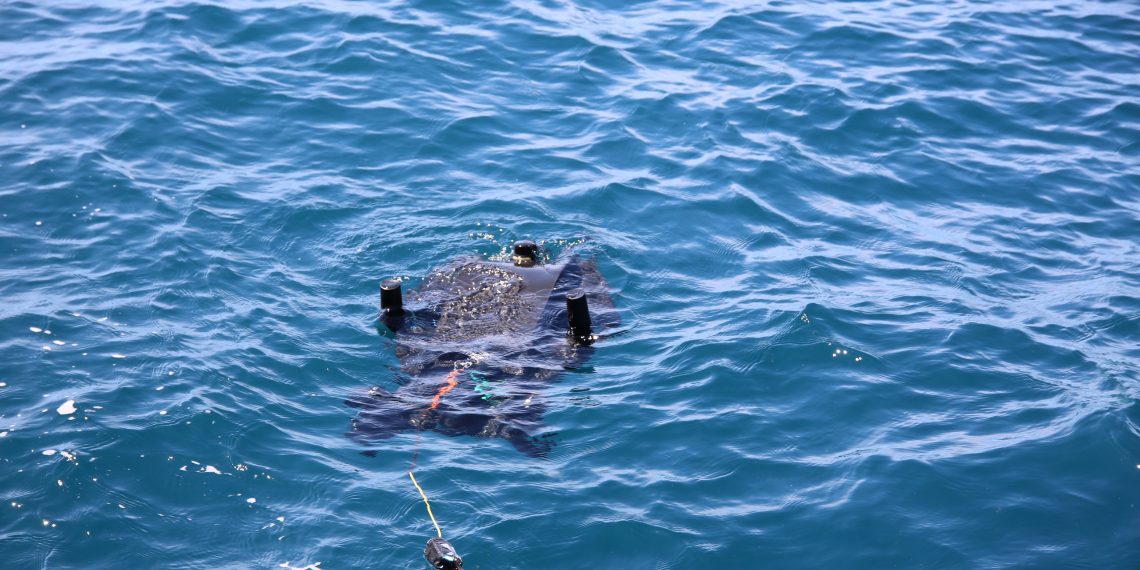The NetTAG project (Tagging fishing gears and enhancing on board best-practices to promote waste free fisheries) developed a technological solution based on acoustic sensors and an autonomous remotely operated vehicle (ROV), in order to locate and recover lost fishing gear. The solution was tested on June 25, off the northern coast of Portugal, near Póvoa do Varzim, marking the end of the project – with the involvement of INESC TEC’s Centre for Robotics and Autonomous Systems (CRAS).
The fishing industry is one of the biggest polluters in ocean. More than 45% of the plastic waste biomass found in the ocean is associated with lost or dumped fishing gear. In order to address this issue, the partners of the NetTAG project joined forces to reduce and prevent marine litter caused by fishing activities.
The University of Newcastle (UK) developed acoustic tracking devices, while INESC TEC’s Centre for Robotics and Autonomous Systems (CRAS) used a hybrid vehicle – the IRIS AUV (Inspection and Recovery Intelligent System) -, developed to help recover the lost fishing gear. The tests were carried out on board a fishing vessel belonging to the Associação Pró – Maior Segurança dos Homens Do Mar (APMSHM), which was also a partner in the project.
“The results showed that both technologies had an excellent performance in locating and recovering fishing gear. We chose these technologies considering their future use by any type of vessel, since they are simple and low-cost solutions; we expect them to be used in the future, to reduce the amount of fishing nets along the north-western coast of the Iberian Peninsula”, said Alfredo Martins, CRAS researcher.
In addition to the technology dimension, the project also included an awareness-raising aspect, engaging fishermen and other actors in the fishing industry in different actions, according to a preventive approach. As an example, the activities during the Ocean Cleanup (April 30, 2021), when more than 320 kg of marine litter were collected by Galician fishermen in a single day.
The project partners included CIIMAR (leader), INESC TEC, University of Aveiro, University of Newcastle, University of Santiago de Compostela, APMSHM, Arvi (Spain Fishermen’s Association) and Euronete. The European Maritime and Fisheries Fund co-funded this project.
The INESC TEC researcher mentioned in this news piece is associated with ISEP-PPorto.




 News, current topics, curiosities and so much more about INESC TEC and its community!
News, current topics, curiosities and so much more about INESC TEC and its community!